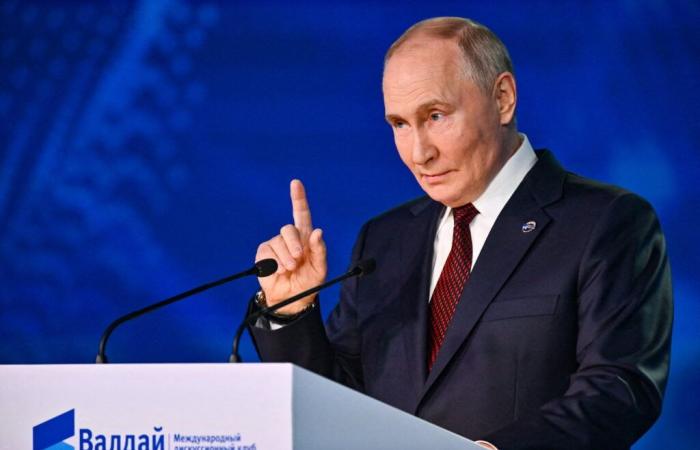
Au 1000e day of the war in Ukraine, far from a path towards peace negotiations, the path taken is that of the most dangerous of escalations. After the outgoing US administration of Joe Biden authorized Ukraine, in accordance with Volodymyr Zelensky's long-standing request, to strike Russian soil with US long-range missiles, Moscow's response was quick.
President Vladimir Putin thus responded, Tuesday, November 19, by signing the decree formalizing his new nuclear doctrine which broadens the possibility of using atomic weapons in the event of a “massive” air assault carried out by a non-nuclear country, but backed by a nuclear power. Clear references to Ukraine and the United States.
“It was necessary to adapt our foundations (of nuclear doctrine) to the current situation”commented Dmitri Peskov, spokesperson for the Russian presidency, also promising Moscow's victory in Ukraine. He would have explicitly declared, according to the Guardian, that the use of non-nuclear Western missiles by the Ukrainian armed forces could lead to a nuclear response under this new doctrine.
“Russia’s response will be appropriate and will be felt”
If the same person had been content the day before to condemn “the outgoing administration in Washington (which) intends to take measures to continue to add fuel to the fire and provoke a further rise in tensions”, the spokesperson for Russian diplomacy, Maria Zakharova, had already been more openly threatening. “kyiv's use of long-range missiles to attack our territory would mean the direct participation of the United States and its satellites (…), as well as a radical change in the essence and very nature of the conflict,” she added, warning that “Russia’s response in such a case will be appropriate and will be felt,”
kyiv, which had opened the door this weekend to possible negotiations, has, for its part, changed gear. “Ukraine will never submit to the occupiers”, underlined Ukrainian diplomacy in a press release, judging that international security requires “the restoration of the territorial integrity and sovereignty of Ukraine”.
The ministry recalls that Moscow took advantage of this war to build a military alliance with North Korea and Iran, describing it as “global threat that destabilizes Europe, Southeast Asia and the Middle East”. “We need peace through force and not through appeasement,” Ukrainian diplomacy once again insisted in this context.
To be the newspaper of peace, our daily challenge
Since Jaurès, the defense of peace has been in our DNA.
- Which still informs today about the actions of pacifists for disarmament?
- How many media point out that decolonization struggles still exist, and that they must be supported?
- How much value do international solidarityand unambiguously commit to the side of the exiles?
Our values have no borders.
Help us support the right to self-determination and the option of peace.
I want to know more!





